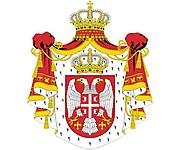Asset-Herausgeber
Das Rechtsstaatsprogramm Südosteuropa arbeitet in allen Bereichen mit lokalen Partnerorganisationen zusammen. Dadurch kann sichergestellt werden, dass das Programm auf Entwicklungen und Initiativen im Land reagiert und an diese anknüpft.
Association "PRAVNIK" (Bosnien-Herzegowina)
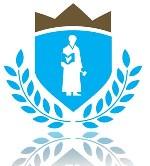
Der Verein der Jurastudenten von Sarajevo(SLSA) setzte das Projekt einer Sommerschule für Studenten im Bereich der Sozialwissenschaften aus BuH in 2006 um. Nach dem Abschluß der Veranstaltung und aufgrund des Erfolgs der Sommerschule haben eine Gruppe von ehemaligen Vorstandsmitgliedern der SLSA und des Projektteams entschieden, die Gründung einer neuen NRO, mit dem Ziel die Förderung der demokratischen Grundwerte und des Rechtsstaats über Projekte weiter zu unterstützen. Die neue NRO wurde "Pravnik" ("Jurist") genannt und wurde am 15. Juni 2007 amtlich regiestriert. Unter den Zielen der NRO sind zu erwähnen: Unterstützung der Ausbildung und der Arbeitssuche der Jurastudenten und Juristen; Förderung der Demokratie und der Menschenrechte in Bosnien-Herzegowina und Förderung des EU-Beitritts.
Zur Webseite
One World Romania Association
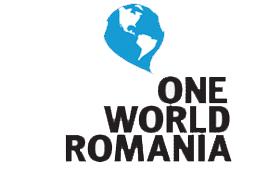
Die Ziele von “One World Romania“ sind das öffentliche Interesse zu wecken - in Bezug auf Menschenrechte, ihre Bedeutung und ihren heutigen Charakter - und die Bürgerbeteiligung im gesellschaftlichen Leben zu verbessern. Die wichtigste Veranstaltung des Vereins ist das jährliche Dokumentarfilm-Festival für Menschenrechte.Contact person:Oana Koulpy+40 726 209 378festival@oneworld.rowww.oneworld.ro
Zur Webseite
Bulgarian Lawyers for Human Rights BLHR (Bulgarien)

Die Bulgarian Lawyers for Human Rights (BLHR) sind eine gemeinnützige Organisation, die auf die nachhaltige Implementierung internationaler Standards im Bereich des Menschenrechtsschutzes in Bulgarien abzielt. Sie wurde 1993 von fünf Anwälten mit unterschiedlichen rechtlichen Schwerpunkten gegründet und ist die erste Einrichtung ihrer Art in Bulgarien sowie Mittel- und Osteuropa. Heute arbeitet BLHR mit mehr als 25 renommierten Anwälten zusammen und setzt sich mit Fragen des Menschenrechtsschutzes in der bulgarischen Rechtsprechung, insbesondere auch mit Aspekten des europäischen Menschenrechtes, auseinander.
Zur Webseite
Association for Development Initiatives - ZENITH

Der Verein „Zenith“ ist eine unabhängige, nicht-staatliche, gemeinnützige und überparteiliche Organisation in Mazedonien. ZENITH prüft, entwickelt und fördert Maßnahmen, wie z.B.:-Entwicklung und Förderung der demokratischen Praktiken-Fortentwicklung der Zivilgesellschaft-Ausbau des Rechts- und Justizsystems-Verringerung von Armut in Verbindung mit der Förderung einer nachhaltigen Entwicklung und-Förderung der sozialen VerantwortungDie Aktivitäten von ZENITH sind in drei programmatische Bereiche unterteilt: Demokratische Staatsführung, EU-Integration und Öffentliche Ordnung.Kontakt:Veljiko Vlahovikj 22A/2-11,1000 Skopje, Macedoniazenith@zenith.org.mkwww.zenith.org.mk
Zur Webseite
Center for Advanced Legal Studies CUPS (Serbien)

Das Center for Advanced Legal Studies (CUPS) ist eine regierungsunabhängige, gemeinnützige Blidungs- und Forschungseinrichtung, die am 3. Juli 1998 auf Initiative einer Gruppe von Professoren der Rechtsfakultät der Universität Belgrad gegründet wurde. Die Hauptaufgabe des Zentrums besteht in der Förderung und Umsetzung von Ideen zum Rechtsstaat, moderner Marktwirtschaft und einer offenen wie demokratischen Gesellschaft.
Zur Webseite
Office for Cooperation with NGOs, Regierung der Republik Kroatien

Das „Office for Cooperation with NGOs“ wurde 1998 im Wirkungsbereich der kroatischen Regierung gegründet, um eine professionelle Zusammenarbeit und Partnerschaften mit (kroatischen) Nichtregierungsorganisationen einzurichten.Das Amt verfügt über ein breites Spektrum an Aktivitäten: Zusammenarbeit bei der Schaffung neuer gesetzlicher Rahmenbedingungen für die Tätigkeit von Nichtregierungsorganisationen, Überwachung der Umsetzung der Nationalen Strategie für die Schaffung eines förderlichen Umfelds für die Entwicklung der Zivilgesellschaft, Empfehlungen für die Finanzierung der Tätigkeit von Organisationen der Zivilgesellschaft aus dem Staatshaushalt und anderen öffentlichen Mitteln sowie aus Beitritts- und Strukturfonds der Europäischen Union.Kontakt:Government of the Republic of CroatiaGovernment Office for Cooperation with NGOsRadnička cesta 80/V10000 Zagrebfon: +385 1 4599 810fax: +385 1 4599 811e-mail: info@uzuvrh.hrwww.uzuvrh.hr
Zur Webseite
Center for Democracy and Human Rights CEDEM (Montenegro)

CEDEM wurde am 2. Juli 1997 als non-profit NGO mit dem Ziel gegründet, das Bewußtsein und die Bedeutung einer erfolgreichen demokratischen Transition zu fördern und zu stärken, Transitionsprozesse zu erforschen und zu analysieren, den Transformationsprozess in Montenegro zu unterstützen sowie zur Stärkung der Zivilgesellschaft und des Demokratieprozesses insgesamt beizutragen.Die Konrad-Adenauer-Stiftung arbeitet seit 2003 mit CEDEM zusammen, seit 2005 über das Rechtsstaatsprogramm Südosteuropa.
Zur Webseite
Centrul de Resurse Juridice (Rumänien)

Centrul de Resurse Juridice, das Zentrum für juristische Ressourcen, setzt sich für die Herstellung und Wirksamkeit eines rechtlichen und institutionellen Rahmenwerkes ein, das die Wahrung der Menschenrechte und Chancengleichheit sowie den freien Zugang zu einem gerechten Verfahren sichern und die Wertschätzung der juristischen Expertise im Interesse aller Menschen erreichen soll.
Zur Webseite
Centre for Advanced Study CAS (Bulgarien)
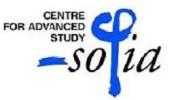
Das Centre for Advanced Study Sofia (CAS) ist eine unabhängige Einrichtung zur Förderung exzellenter Wissenschaftler und akademischer Zusammenarbeit. Sein zentrales Engagement gilt der Förderung herausragender Forschung in den Geistes- und Sozialwissenschaften. Das Zentrum zielt drauf ab, junge Talente ebenso wie etablierte Wissenschaftler anzuziehen. Es liefert die institutionellen Voraussetzungen dafür, innovative Forschung, intellektuelle Kreativität und Dialog betreiben zu können und unterstützt dadurch die Bildung neuer regionaler Eliten. CAS dient der internationalen akademischen Gemeinschaft als Schnittstelle zum Balkan, die Türkei und Griechenland inbegriffen. Es ist Schwesterinstitution des Wissenschaftskollegs zu Berlin.
Zur Webseite
Verfassungsgericht der Republik Mazedonien
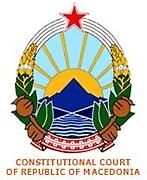
Bei einem Referendum im September 1991 brachten die Bürger der Republik Mazedonien ihren eigenen Willen zum Ausdruck und stimmten für die Souveränität und Unabhängigkeit der Republik Mazedonien. Diese Abstimmung wurde verfassungsmäßig und rechtlich durch die Verabschiedung der Verfassung der Republik Mazedonien im November 1991 vollzogen. Der Verfassung zufolge basiert das sozialökonomische und politische System der Republik auf den Prinzipien von Rechtsstaat, Menschenrechten, Grundfreiheiten, Gewaltenteilung, Marktwirtschaft und weiteren Grundwerten einer modernen demokratischen Gesellschaft. Die Verfassung errichtete das Verfassungsgericht der Republik Mazedonien als ein Organ der Republik zum Schutze der Verfassungs- und Gesetzmäßigkeit sowie der Grundrechte und individuellen Bürgerrechte.
Zur Webseite
Verfassungsgericht der Republik Albanien
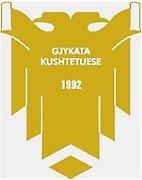
Das Verfassungsgericht besteht aus neun Mitgliedern, die für eine Amtszeit von neun Jahren ohne Möglichkeit der Wiederwahl ernannt werden. Die Verfassungrichter werden vom Präsidenten der Republik mit Zustimmung der Versammlung ernannt. Der gesetzlichen Vorgabe folgend wird ein Drittel der Zusammensetzung des Verfassungsgerichtes alle drei Jahre erneuert. Die Mitglieder des Verfassungsgerichtes von Albanien sollten Juristen sein, albanische Bürger mit beruflichem Renommee. Sie sollten über eine mindestens zehnjährige Berufserfahrung als Juristen oder Juraprofessoren sowie einen einwandfreien Ruf verfügen. Der Präsident des Verfassungsgerichts wird aus den Reihen der Mitglieder vom Präsidenten der Republik ausgewählt und mit Zustimmung der Versammlung auf eine dreijährige Amtszeit berufen. Eine Wiederwahl ist erlaubt (Artikel 125 der Verfassung). Ein Richter des Verfassungsgerichtes bleibt im Amt, bis ein Nachfolger benannt wird.
Zur Webseite
Verfassungsgericht der Republik Serbien

Das Verfassungsgericht der Republik Serbien wurde im April 1963 als unabhängiges Organ der Republik gegründet und entworfen, um die Verfassungs- und Gesetzesmäßigkeit im Rahmen der Rechte und Pflichten zu schützen, wie sie die Verfassung der Sozialistischen Republik Serbien vorschreibt.Das Verfassungsrecht Serbien, das im Dezember 1963 in Kraft trat, definiert die Rechtssprechung und Verfassungsgerichtsbarkeit vor dem Verfassungsgericht der Republik Serbien sowie die jeweiligen rechtlichen Auswirkungen seiner Entscheidungen.Das Verfassungsgericht der Republik Serbien nahm seine Arbeit im Februar 1964 auf. Es handelte bei der Ausrufung der Verfassung der Republik Serbien 1990 im Rahmen der Abwesenheit der Gewaltenteilung, als das Parlament das höchste Organ der Staatsgewalt war. Das Verfassungsgericht der Republik Serbien hat durch seine Präsenz und Arbeit zur Bedeutung und Bewahrung der verfassungsmäßigen Prinzipien und Gesetzmäßigkeit beigetragen.
Zur Webseite
FEPPS - Faculty of European Legal and Political Studies (Serbien)
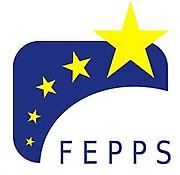
Das Rechtsstaatsprogramm Südosteuropa der Konrad-Adenauer-Stiftung hat gemeinsam mit der Fakultät der Europäischen Rechts- und Politikwissenschaften (FEPPS) das Fachgespräch "Rechtsstaat - die Strafmündigkeit der Regierung und die Kontrolle über die Staatsgewalt" am 8. Juni 2009 in Novi Sad organisiert. FEPPS hat ihren Sitz in Sremska Kamenica und ist an die Singidunum Universität in Belgrad angegliedert.
Zur Webseite
Human Resources Management Service
JURINDEX – der National Jurisprudence Index (Rumänien)

JURINDEX – der nationale Rechtslehre-Index ist ein kostenloser öffentlicher Dienst, der unter der Ägide des Obersten Magistratsrates vom Vrancea-Tribunal entwickelt wurde, um den Zugang der Öffentlichkeit zur Justiz zu beschleunigen und zu verbessern, die Transparenz des Justizwesens zu erhöhen und das Vertrauensverhältnis zwischen Justizwesen und Bürger zu stärken. Die Aufgabe von JURINDEX besteht darin, sämtliche rechtliche Entscheidungen der Instanzen in Rumänien in ihrer Gänze im Internet zu veröffentlichen bzw. den freien Zugang der Bürger zu diesen Dokumenten zu sichern. Das Projekt befindet sich in fortlaufender Entwicklung, da es mit seiner Einführung zur wichtigsten Datenbank für Rechtslehre in Rumänien wurde. Die Philosophie und Werte von JURINDEX sind angeregt durch die “Free Access to Law Movement”, die Bewegung für freien Zugang zu Recht, sowie durch den Dokumentarfilm “Declaration on Free Access to Law”, eine Erklärung zum freien Zugang zu Recht (Montreal, 2002).
Zur Webseite
Institutul National al Magistraturii INM (Rumänien)
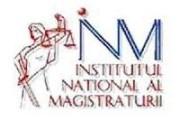
Das Institut bildet künftige Magistrate aus – Richter wie Staatsanwälte –, organisiert Weiterbildungen für bereits praktizierende Magistrate und bietet Fortbildungen zu Multiplikatoren an. Die Vorbereitung der Rechtsberater auf den Magistratsberuf basiert auf der Kenntnis der Tendenzen und der Entwicklung der führenden juristischen Einrichtungen sowie des vergleichenden Rechts und konzentriert sich dabei insbesondere auf die Vermittlung praktischer Kenntnisse.
Zur Webseite
Tschechisches Zentrum Bukarest (Rumänien)

The Czech Center in Bucharest is a cultural institution which introduces the Romanian public into cultural and economical manifestations from the Czech Republic. The institution is a part of the Czech Center network and is budgeted by the Foreign Affairs Ministry of the Czech Republic. Our aim is to develop dialog with the foreign public in the fields of culture, education, trade, tourism and to present the Czech Republic as a modern and dynamic country. Currently, the Czech Center has 24 offices in 20 countries of the world. The Czech Center in Bucharest addresses to a broad public, but mainly trying to waken the attention of young people. The center organizes activities also in other cities in Romania.
Zur Webseite
Justizministerium (Rumänien)
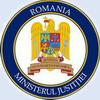
Das Justizministerium ist das Zentralorgan der öffentlichen Verwaltung, eine der Regierung untergeordnete juristische Person, die die Erarbeitung, Koordination und Umsetzung der Strategie und des Programms der Regierung im Einklang mit den demokratischen Prinzipien des Rechtsstaats sicherstellt.
Zur Webseite
Political Science Research Centre CPI (Kroatien)

Das CPI wurde als erste private wissenschaftliche Einrichtung seiner Art in Kroatien gegründet mit dem Zweck, wissenschaftliche Forschung auf dem Gebiet der Politik- und Sozialwissenschaften zu betreiben. Bis auf weiteres umfasst das Zentrum rund zehn Politologen und Soziologen der Universität Zagreb. Im Bezug auf die Organisation basiert das Zentrum auf einem internetbasierten, globalen Netzwerk von Wissenschaftlern, die sich problemorientierter Projekte annehmen. Sein Tätigkeitsbereich erstreckt sich unter anderem auf die Erforschung des politischen Systems Kroatiens sowie seiner Außenpolitik und internationalen Beziehungen, auf die Erforschung von Globalisierung und der Europäischen Integration sowie auf Transitionsprozesse. Außerdem erstellt es vergleichende Studien politischer Systeme weltweit.
Zur Webseite
Kanzlei Stoica & Asociatii (Rumänien)

Anwaltskanzlei, die sich den Prinzipien "Recht, Wahrheit, Gerechtigkeit" sowie der Vertretung der Rechte ihrer Mandanten verschrieben hat. Moralische Werte in Verbindung mit der Ethik des Anwaltsberufes stellen die Grundpfeiler der Arbeit von Stoica & Asociatii dar, deren wichtigstes Teammitglied nach eigener Aussage der Mandant ist.
Zur Webseite
Stalfort Rechtsanwälte

Stalfort Rechtsanwälte ist auf dem Gebiet der deutsch–rumänischen Rechts- und Wirtschaftsbezie-hungen eine der führenden Kanzleien. Seit 1996 beschäftigen wir uns nahezu ausschließlich mit der umfassenden Beratung ausländischer Investoren, insbesondere aus dem deutschsprachigen Raum, im Rumänien–Geschäft. Durch diesen hohen Spezialisierungsgrad verbinden wir die Professionalität einer international agierenden Großkanzlei mit der persönlichen Beratungskultur einer überschaubaren schlagkräftigen Dienstleistungseinheit. Zu unseren Mandanten gehören daher sowohl kleinere und mittelständische Unternehmen als auch »global players«. Ein besonderer Ansporn ist uns, dass wir das Rumänien–Engagement von Gesellschaften betreuen, die ansonsten weltweit stets die gleiche »law firm« in Anspruch nehmen.
Zur Webseite



